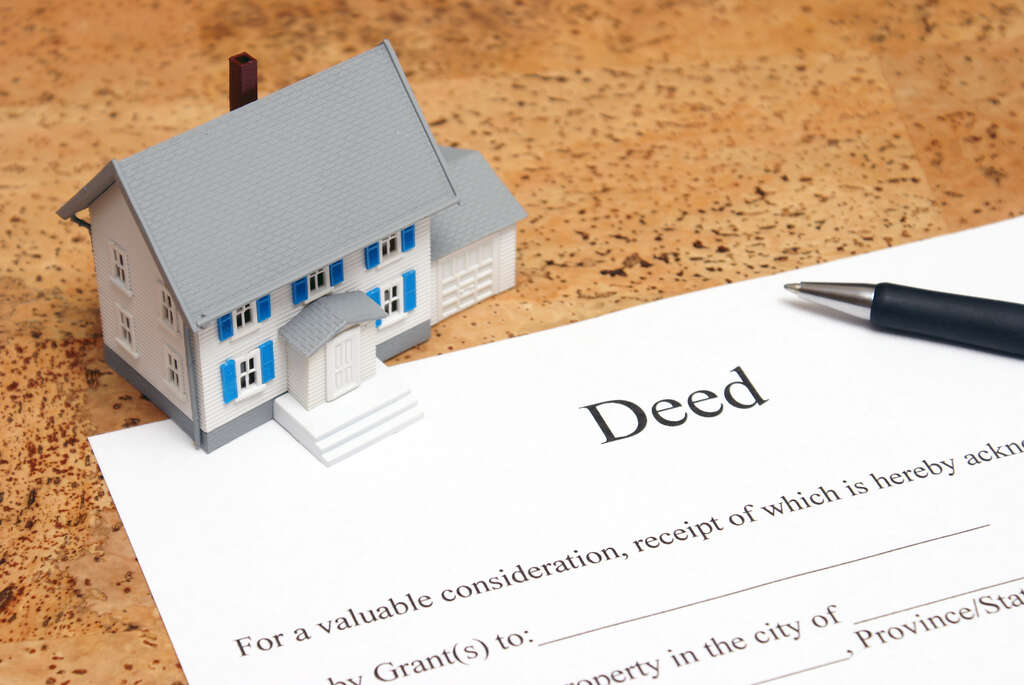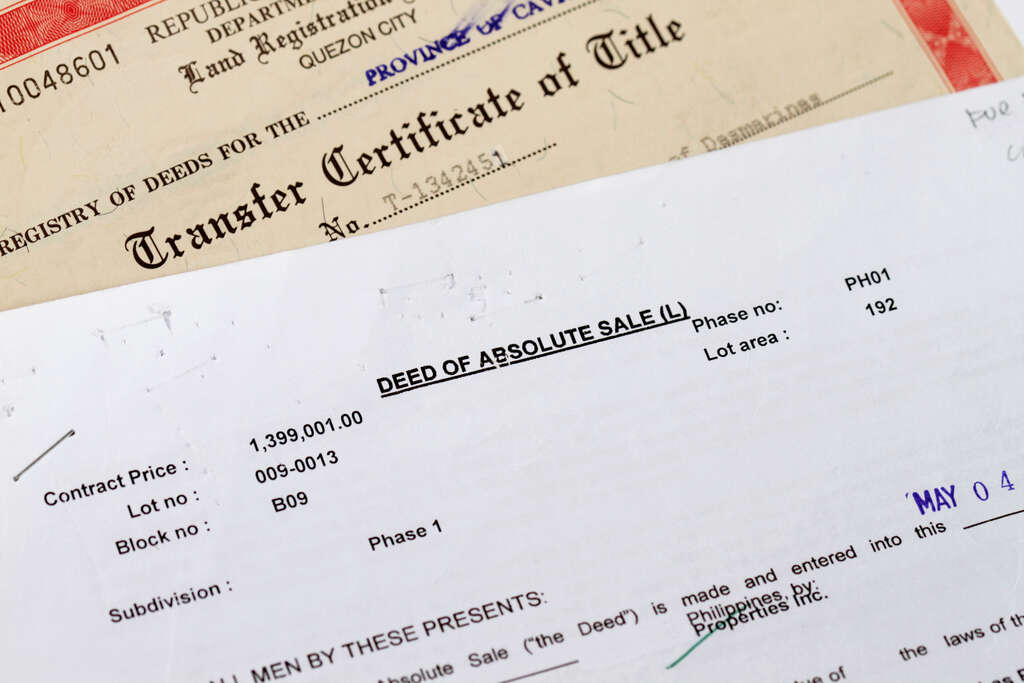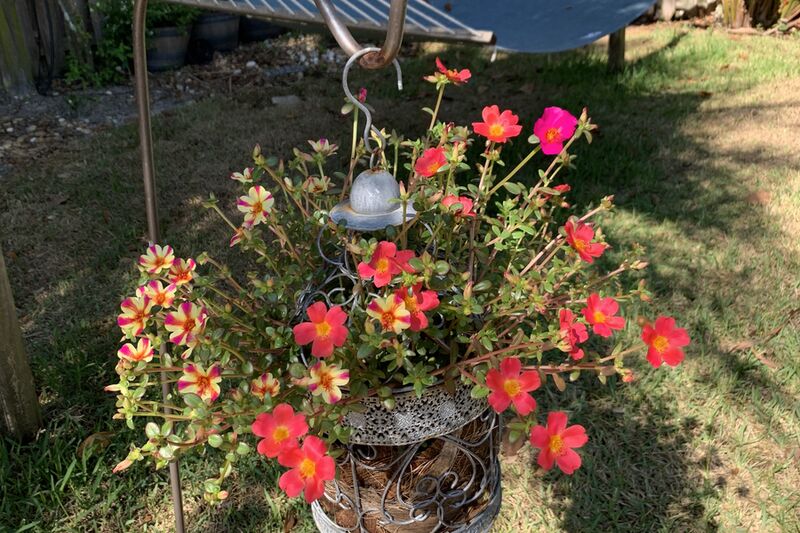Avoid Probate With A 'Ladybird Deed'
Posted: July 18th, 2022
What is a Ladybird Deed, and Why Should You Consider Getting One?
Note: The following is specific to Florida law. We strongly recommend you consult an attorney before attempting to set up a ladybird deed (or making any changes to the status of title to your real estate).
Transfer Property Ownership Without Need for Probate
A ladybird deed is a fully revocable form of a ‘life estate’ used to pass title (ownership) or real estate upon the owner’s death without need for probate.
Anyone who owns property in their individual capacity (meaning flesh and bone living and breathing humans including married couples, but excluding corporations, LLCs, or trusts) can pass ownership upon death without need for probate, while retaining the full range of ownership rights, including the right to sell, mortgage, or lease the property, and keep all proceeds for the benefit of the property owner(s).
The owner becomes the ‘life tenant’, and enjoys all of the benefits of possession and ownership during the owner’s lifetime.
Upon the death of the life tenant (think: owner), title (ownership) passes to the ‘remainderman’ (think: death beneficiary/beneficiaries) without probate court.
All that is required to establish clear title (ownership) in the death beneficiary (can be multiple) is to record the certificate of death for the former owner in county's public land records.
 Is a Ladybird Deed Superior to a Will in Passing Real Estate Ownership Upon the Owner’s Death?
Is a Ladybird Deed Superior to a Will in Passing Real Estate Ownership Upon the Owner’s Death?
A will is not self-effecting; a ladybird deed is.
With a ladybird deed, title to (ownership of) the property passes immediately upon the life tenant’s (owner’s) death.
All that is required to establish record title in the death beneficiaries is to record the death certificate of the (former) life tenant in the public land records.
A will must go through the probate court process to be given effect of law; otherwise it’s just another piece of paper.
Probate typically costs several thousand dollars in attorney’s fees and court costs, and takes months of time when everything goes as planned (which is not always the case).
With a a ladybird deed all that is needed is to record the life tenant's death certificate in the public land records in the county in which the property is located, a process which currently costs less than $20.00.
Can I Keep My Homestead Exemption With a Ladybird Deed?
Yes. Under a ladybird deed, the life tenant (owner) retains all rights during his or her lifetime ( in the case of a married couple, until the death of the survivor as between the two of them).
This includes the homestead tax exemption and any other exemptions the owner qualifies for like widow, disabled veteran, etc.).
In addition to any available tax exemptions, the owner is also able to retain the benefits of Florida's generous constitutional homestead exemption from judgment creditors, which protects the owner from forced sale of the homestead property by one’s judgment creditors.
This exemption survives the owner's death, but only if the property is passed to next of kin, which can be accomplished without probate using a ladybird deed.
Is a Ladybird Deed Revocable?
Yes, if drafted properly, the ladybird deed is fully revocable by the life tenant (owner) at any time during the life tenant’s ownership of the property (i.e. until sale or death).
The life tenant (owner) may change the remainderman (death beneficiary/beneficiaries) at any time, or can simply deed the property back to the life tenant/owner outright.
The life tenant (owner) may also sell the property at any time and does NOT need to first revoke the ladybird deed before selling because the right to sell the property and retail all sale proceeds is expressly reserved in the language creating the ladybird deed.
Can I Have a Ladybird Deed if I Have a Mortgage?
Yes, you can have a ladybird deed even if you have a mortgage on the property, but there are a few things to know.
First, if you are buying a property, your lender will most likely NOT allow you to buy using a ladybird deed. However, they can't prevent you from doing so after purchasing, because establishing a properly drafted ladybird deed does not violate any terms of the standard mortgage including the ‘due on transfer’ clause.
Second, if you already have a ladybird deed and are seeking a mortgage refinance, the ‘new’ mortgage holder will likely require you to revoke the ladybird deed and reestablish (fee simple) absolute ownership by the life tenant (owner) so that they know that the owner has clear title in order to give the lender a valid new mortgage. In truth there is nothing to prevent the owner under a ladybird deed from giving a perfectly valid mortgage (which is a right usually specifically reserved to the owner in the language creating the ladybird deed arrangement), but the mortgage lenders don't seem want to understand.
Once the new mortgage refinance transaction has closed, there is nothing to prevent the owner from once again setting up a new ladybird deed.
Should I Put the Ladybird Deed in Place Before or After Purchase?
Given the natural human inclination to procrastinate, especially in matters of estate planning, it is best to set up your ladybird deed at the time of purchase, if possible.
If you are paying cash, you can establish the ladybird deed at the time of purchase.
If you wish to do so, you should let the title company know so as soon as possible after you enter into the contract to purchase.
Some title companies which are not attorney-owned or operated require that a buyer hire an attorney to provide the title company with specific vesting instructions to set up a ladybird deed at the time of purchase.
If you are financing your purchase with a mortgage loan, your lender most likely will NOT allow you to purchase with a ladybird deed. However, you can establish the ladybird deed at any time after purchase. Homebuyers in Titusville, FL, or elsewhere throughout Central Florida should review their lender’s policy.
Putting a ladybird deed in place after you have purchased the property using a mortgage loan does not violate the terms of the mortgage i.e. the ‘due on transfer’ clause.
A good reason to set up your ladybird deed soon after purchasing the property (if you weren't able to do so directly at purchase) is so that it is done before the first county tax assessment after the purchase (so that you don't have to apply for the same exemption twice).
If you wait until after the first tax assessment you will have to reapply for the homestead and any other tax exemptions you have, which is true whenever you make a change to ownership, including for example if you put the property directly into a trust.
Once established after the ladybird deed is in place, any homestead and other tax exemptions should automatically renew until the death of the life tenant or a change of the deed (including a sale by the life tenant, or a new ladybird deed by the life tenant to change death beneficiaries).
Why is a Ladybird Deed Also Referred to as an “Enhanced Life Estate?”
The main reason that the ladybird deed is also referred to as an enhanced life estate is the ability of the life tenant owner to revoke the death beneficiary's remainder interest, which was NOT an available feature under a traditional or ‘common law’ life estate deed in Florida. Under a traditional common law non-enhanced life estate, once established, the remainder interest of the death beneficiary cannot be revoked by the life tenant, as can be done with the ladybird deed.
Another ‘enhancement’ over the traditional common law life estate arrangement is that the life tenant under a ladybird deed is not liable to the remainderman for ‘waste’ (avoidable deterioration of/failure to maintain the property), as is the case under a traditional common law life estate.
 Are There Any Tax Consequences With a Ladybird Deed?
Are There Any Tax Consequences With a Ladybird Deed?
For the owner, there are no (zero) tax consequences of establishing a ladybird deed, because there is no present transfer of any interest in the property until the death of the owner/life tenant. It is a non-event.
The remainderman/death beneficiary benefits from the ‘stepped up’ basis upon the owner’s death.
Why is a Ladybird Deed Superior to Adding a Joint Tenant With Rights of Survivorship During the Owner’s Lifetime?
A ladybird deed is superior to ‘adding someone to title’ to create a ‘joint tenancy with rights of survivorship’, a common but I'll-advised practice used by some trying to avoid probate, for a few reasons.
First, adding a child or other relative as a joint tenant is an ‘inter vivos’ transfer, usually done as a gift, and as a result the donee (person receiving the gift) receives the donor’s basis (instead of the usually more beneficial stepped-up basis which the beneficiary would receive under a ladybird deed), resulting in a gain and tax when the donee sells the property, whereas there would be no gain (and thus no tax) if the transfer had not occurred until the death of the life tenant under a ladybird deed.
Aside from the tax consequences of adding someone to title, consider also that the property is available to potential judgment creditors (including former spouses/child support) of the person being added. Usually the property is not the homestead property of the person being added, meaning that there are no exemptions to the judgments.
Even if the property is not seized by such a judgment creditor, the judgments would most likely need to be paid off (with any accrued interest) at the time of a sale.
Additionally, once someone is a co-owner under a joint tenancy deed, that person must agree to any sale (or mortgage refinance).
Further, once the person is added to title (ownership), they have a right to sue for 'partition’ i.e. court ordered sale of the property and splitting of the proceeds in an equitable manner.
Are There Any Restrictions on Who Can Use a Ladybird Deed?
Yes.
First, the 'life tenant’ must be a natural person (as opposed to holding in trust or as a business entity i.e. an LLC or corporation).
However, there are no such restrictions on who can be the remainderman/death beneficiary.
The remainderman/death beneficiary can be a natural person, multiple natural persons, the trustee(s) of a trust, or an entity (corporation or LLC).
If you wish to leave your property to multiple natural persons (i.e. your children in equal shares, which is commonly done), you have the option to have their interests vest either as tenants in common (meaning that upon the death of any of the death beneficiaries, their interest passes to their estate) or as joint tenants with rights of survivorship (meaning that if one of the death beneficiaries dies while owning the property, the other death beneficiaries obtain the deceased death beneficiary’s share, without need for probate and free and clear of any interest of the deceased death beneficiary’s estate).
Second, If you are married and the property is your homestead property, you cannot use a ladybird deed to pass the property to anyone other than your surviving spouse outright (unless your spouse consents to the deed by signing the deed).
This is due to a provision in the Florida constitution which prohibits married persons from leaving their homestead property in their will to anyone other than their spouse.
By signing the deed, the spouse of the owner may consent to the owner setting up a ladybird deed which passes the property to someone other than the surviving spouse.
Does a Ladybird Deed Work for Married Persons Who Own Their Property Together?
Yes, a ladybird is compatible with ownership by married couples (and for reasons explained immediately below, is superior to ownership under a joint marital trust).
The married couple can (collectively) be the life tenant under the ladybird deed.
In this scenario, the married couple own the property together while both are alive (just as they do without the ladybird deed).
Upon the death of the first spouse to die, the surviving spouse immediately becomes the sole life tenant, without any loss of any rights, and without need for probate of the estate of the deceased spouse, because ownership of the life estate has passed outside of probate by virtue of the survivorship rights between the spouses as to the life estate (exactly the same as would have been the case if they owned the property as a married couple without the ladybird deed arrangement).
With a ladybird deed, all that the surviving spouse needs to do is record the certificate of death of the deceased spouse in the public land records in the county where the property is located (which currently costs about $20.00 versus probate which costs thousands in attorney's fees and other cost, to say nothing of the list time while the probate court process unfolds, with statutorily required notice timelines etc.).
Upon the death of the surviving spouse, title immediately passes to the remainderman (death beneficiary).
Alternatively, the surviving spouse may during his or her lifetime sell the property and keep all of the proceeds, in essence revoking the ladybird deed (just as the married couple could have done by a joint decision while both spouses were still alive).
Why is a Ladybird Deed Superior to Deeding the Property Directly Into a Joint Marital Trust?
Retaining ownership of the life estate as a married couple allows the married owners as the life tenant to take advantage of one of the best creditor protection benefits available under Florida law, namely that of an ‘estate by the entirety’ (also referred to as ‘tenancy by the entirety’ or ‘entireties’).
Under an estate by the entirety, which can only exist between a married couple, even non-homestead property is exempt from a judgment against either of the spouses.
Rather, a money judgment must be against BOTH spouses before it will attach as a lien on property held in this manner (estate by the entirety/married couple). Note: An exception is a federal tax lien, for which this judgment protection of an estate by the entirety does not apply.
This advantage is lost if one deeds the property directly into a joint trust, in which case a judgment against either of the spouses who are the beneficiaries of the joint trust will attach to the property (unless it is homestead property, but establishing one's rights to the homestead exemption from creditor’s claims in this circumstance becomes much more cumbersome, requiring use of the ‘notice of homestead’ provision under Section 222.01 of the Florida Statutes, which requires a 45 day notice to the creditor before a closing may proceed, versus holding as a married couple, in which case the owners can simply file an ‘affidavit of continuous marriage’ to ‘overcome’ the presence of a recorded judgment against one of the spouses).
Thus, the better practice in the case of a joint marital trust is to have a ladybird deed in which the married couple retains the life estate under an estate by the entirety or as ‘tenants by the entirety’, and have the 'successor trustee’ of the joint trust be the remainderman (death beneficiary), so that if there is a judgment against either of the spouses, the judgment will not attach so long as the couple remains married to each other. Under this scenario title to the property doesn't pass into the trust (trustee) until the death of the surviving spouse (who can elect to sell the property during his or her lifetime and retain all proceeds).
In the event of a divorce, the ownership as a married couple breaks down into a ‘tenancy in common’, with no survivorship rights, and any judgments against either spouse immediately attach to that spouse’s half interest in the property) but with possible protection under the homestead exemption from judgment creditors of the property is the homestead of the spouse that is the judgment debtor.
Does a Ladybird Deed Work for Vacant Land?
Yes. A ladybird deed works regardless of the nature of the real estate’s character as vacant land, a single family residence, a condominium, or a townhome. If it’s real estate, you can pass it upon the owner’s death using a ladybird deed.
 Does a Ladybird Deed Work for a Second Home, Vacation Home, or Rental Property?
Does a Ladybird Deed Work for a Second Home, Vacation Home, or Rental Property?
Yes, a ladybird deed will work for a second home, vacation home, or rental property.
A ladybird deed is especially effective for non-Florida residents who own property in Florida because if an owner of Florida real estate dies while owning Florida real estate, it is likely that there will need to be multiple probate cases filed, i.e. one in the decedent’s home or ‘domiciliary’ state and one in Florida (and any other states in which the decedent owned real estate) as an ‘ancillary’ estate, whereas with a ladybird deed, title/ownership passes immediately upon the death of the owner/life tenant, directly to the remainderman/death beneficiary, with the only requirement being recording of a certificate of death for the life tenant in the county land records where the property is located.
Who Cannot Use a Ladybird Deed
If the owner is married and the property is the owner’s homestead property, the owner cannot use a ladybird deed to pass the property to anyone other than the owner’s surviving spouse outright, unless the non-owning spouse consents to the deed by signing the deed.
This is due to a provision in the Florida constitution which prohibits married persons from leaving their homestead property in their will or trust to anyone other than their spouse. The ladybird deed cannot be used to do that which could not be done with a will or trust.
By signing the deed, the spouse of the owner may consent to the owner setting up a ladybird deed which passes the property to someone other than the surviving spouse.
Why Should Anyone With a Mortgage–Especially a Reverse Mortgage–Establish a Ladybird Deed?
Persons with reverse mortgages should consider a ladybird deed because reverse mortgages often result in a foreclosure action after the owner/life tenant’s death. This happens more with reverse mortgages than with 'normal’ mortgages because of the a combination of factors including the peculiarities of what constitutes an event of default under a reverse mortgage (including the simple fact of the owner’s death) and the potential for depletion of equity in the property at the time of the decedent due to a rising mortgage debt balance.
If there is little or no equity in the property at the time of the decedent's death, there is no incentive for the heirs to initiate a probate action as would be needed to establish title (ownership) in the heirs so that they can sell the property.
In this scenario the mortgage holder must initiate a foreclosure action to establish its own title to the property and this usually requires the mortgage holder to name any known heirs of the decedent as defendants in the foreclosure action to eliminate the potential or actual ownership interest of the heirs.
In such a case a foreclosure action would result in an ‘in rem’ judgment against any known heirs, meaning the mortgage holder can only ‘take’ (eliminate) the heirs’ interest in the specifically mortgaged property, rather than an ‘in personam’ judgment, under which the judgment holder can go after other assets owned by the judgment debtor. Nevertheless, it is very unsettling for most people to have to be a defendant in a foreclosure action, especially on a property the person never had any benefits of owning and was an owner in name only as a result of the death of a parent or other relative and the mere potential claim of ownership. It's an unwelcome complication for people in such circumstances to have to explain on a credit, rental, or employment application why they were subject to a foreclosure action even if they aren't directly personally liable, and the potential lender, landlord, or employer, that the application is being made to is unlikely to understand the nuances.
If the owner sets up a ladybird deed, title passes immediately to the death beneficiaries who can then quickly sell the property if there is any equity or, if there is no equity, the heirs can execute a ‘deed in lieu of foreclosure’ to simply ‘give’ the property to the mortgage holder, rather than suffer the inconveniences of being named as defendants in a foreclosure action.
The Most Efficient and Cost Effective Way to Pass Title to Florida Real Estate
Ladybird deeds (when used properly) are the most efficient and cost effective way to pass title to Florida real estate upon the owner's death.

